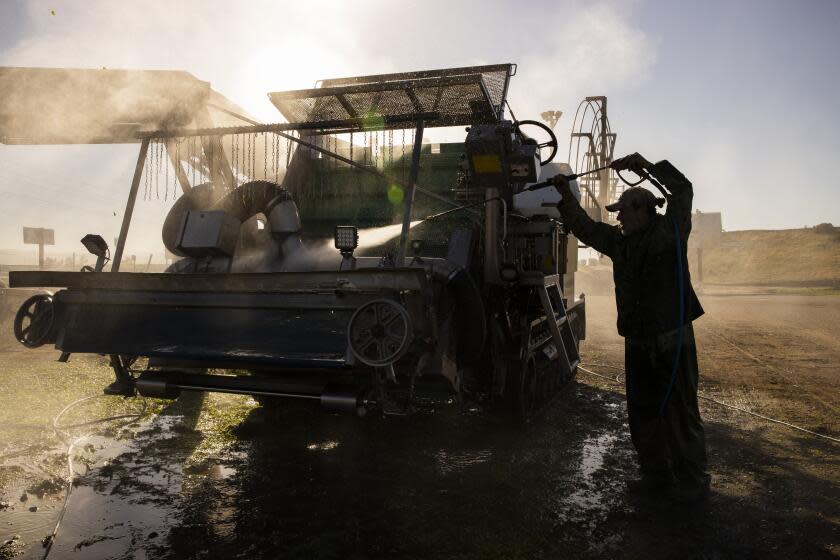Assembly passes bill to require farmers to notify county before using pesticides near schools

The state Assembly on Tuesday passed legislation that would require farms within a quarter-mile of a school to notify county officials before spraying pesticides.
The intent of Assembly Bill 1864, authored by Assemblymember Damon Connolly (D-San Rafael), is to reduce exposure to pesticides in young children, who are uniquely affected by the carcinogens.
"Strengthening the enforcement of pesticide regulations in school zones is critical to student health, particularly in our rural school districts," Connolly said. "Children are particularly vulnerable to the health impacts of pesticides, and insufficient enforcement of pesticide regulations disproportionally impacts students of color."
The legislation now heads to the state Senate for consideration.
Before the Assembly vote on Tuesday, Connolly argued that the prevalence of the chemicals near classrooms is a source of anxiety for parents of school-age kids living in some of the state's most rural counties where schoolyards and farms often border each other.
Last month a group of teachers and environmental and social justice groups sued Monterey County agriculture officials and state pesticide regulators, alleging they disregarded children’s health by allowing several farms to use restricted pesticides near three elementary and middle schools, whose students are mostly Latino.
Monterey County ranked seventh among California’s 58 counties for the most number of pesticides applied, with more than 9 million pounds used on 6.5 million acres. Fresno and Tulare counties are ranked first and second, respectively, according to the California Department of Pesticide Regulation.
A local city council member called it "environmental racism."
Read more: ‘It’s environmental racism’: Monterey County sued over farm chemicals near mostly Latino schools
The California Department of Public Health, California Environmental Health Tracking Program and Public Health Institute released a study in 2014 that examined pesticide exposure across 2,511 public schools attended by more than 1.4 million students. It found that Latino students were disproportionately exposed, where 46% were more likely than their white counterparts to attend schools with the highest exposure to pesticide use.
The report found that children are more prone to exposure due to three factors: being outside more often, their physiological maturity and their body size. Exposure rates were also found to differ dramatically across counties, mostly due to counties implementing different buffer zones for pesticide use or restricting the use of pesticides near certain sensitive locations.
Connolly's bill would require farmers to submit requests to county agricultural commissioners for authorization to use pesticides within a quarter-mile of a public or private school.
Californians for Pesticide Reform, a statewide coalition that wants to restrict pesticide use and a supporter of the bill, said that exposure to pesticides is "linked to acute poisoning and chronic diseases, such as cancer, respiratory disease and developmental disorders in children."
The California Agriculture Commissioners and Sealers Assn., an organization that provides regulatory services for agricultural production and opposes the bill, argued that the burden of the new enforcement responsibilities would "fall largely on the county's agricultural commissioners."
Other opponents include various state and family-run groups including the California Blueberry Assn., the California Strawberry Commission and the Olive Growers Council of California.
This story originally appeared in Los Angeles Times.

